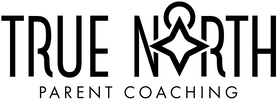|
I was recently interviewed by Matt Albert of the Big Picture Parenting Blog at Psychology Today. Thanks Matt for the opportunity to talk about Pandemic Parenting in 2020 and 2021. It’s been quite a year! I’ve been speaking with other parenting experts to hear their thoughts on 2020, COVID parenting, and looking forward to 2021. This week, I had the chance to hear from Dr. Jenny Michaelson, a PCI Certified Parent Coach, about pandemic parenting. Q: What’s been on your mind as we wrap up an undoubtedly difficult year for parents? The scene in Ferris Bueller’s Day Off at the Chicago Museum of Art keeps popping up for me. You know the one, when Ferris and his friends are looking at George Seurat’s painting A Sunday on La Grande Jatte. The camera zooms in until you can just see the dots of color and I’m reminded of how perspective can make such a difference in the way we view things. When you look closely it’s beautiful individual brushstrokes of color. When you step back it’s a whole landscape. No one would argue that if we step back from our world for a wider perspective today it’s more like Picasso’s La Guernica than Monet’s Water Lilies. Right now life is chaotic, confusing and messy. The pandemic has turned most of our lives upside down. Q: What would you say to parents who are feeling down about their parenting during the pandemic? You are not alone. Like a lot of parents I know, I have spent a lot of time thinking about all the ways that I have failed my kids as I have had to balance working from home, distance learning, isolation and the stress of living through this charged political, environmental and social climate. I am sad to say that not a lot of great parenting moments came out of any of that reflection. Like the time when I was so fed up with my son’s messy room that I screamed at him that not only was I going to stop doing his laundry but he was going to have to start paying me to use the washing machine. Pandemic parenting stretched me to bend rules and make decisions for my kids I never would have in 2020. I lost my temper more often, I let them stay on the screens way too long and we ate more dessert in these last ten months than we did in our entire lives prior! Q: Looking forward, what do you suggest parents consider in the new year? As we gear up for more pandemic parenting in 2021 I realize that it’s actually not about taking in the wider view this year, but looking at the details. I ask my clients to look closely at their situation to find the places in between the conflict and stress where things are working. Encouraging them to find positivity even in light of what they are facing helps bring hope and resilience, calm and focus. So I took a deeper dive myself, to find the small moments in 2020 when I did ok as a mom. What I found out was that while my kids ate a ton of dessert this year, they also learned to bake and clean up after themselves. While I lost my temper more than usual, I also modeled how to repair relationships, by apologizing to them when I was out of line. And while they were on the screen WAY more than I wanted, I was using that time to take care of myself so I could have more patience with my family. Taking the time to focus on sweet moments with my kids even if they were few and far between helped shift my negative perspective. Q: Are you feeling hopeful about 2021? My deep dive into the positive has psychological and physical benefits that I am hoping to feel more of in 2021. These include lower stress levels, better overall physical health and increased coping skills. Until life can get back to normal and I can shore up my kids screen use and I can send them back out in the world to go to school, hang with friends and play, I’ll need as much of that as I can get in 2021. We have miles to go before life looks anything like Seurat’s painting, when we can lounge in the park without concern for our health and safety. Our challenge as parents as we prepare for what’s to come in 2021 is to continue to shift the frame, turn on the zoom lens and focus on the colorful brushstrokes. Set the intention to reflect on your parenting by keeping track of what went right, daily, weekly or even monthly. Pay attention to the small things that bring our focus to what’s good in our parenting and beyond. It will make the difference between just getting through it and feeling positivity, joy, hope and satisfaction during these troublesome and difficult times. Jenny Michaelson, Ph.D., is a PCI Certified Parent Coach®. In her practice, True North Parent Coaching, she works with parents to uncover strengths and develop strategies to make transformational changes to overcome parenting challenges and bring more joy, ease and fun back to parenting.
0 Comments
Next week kids will be off of school for winter break and with many cities under new shelter in place orders they will find themselves with little or nothing to do. For most kids that means more screen time, and for most parents, increased anxiety about how much screen time is too much and how to get kids engaged in off screen activities. While winter break isn’t the time to try to reduce screen time, you can definitely be intentional about setting up guidelines that promote a healthy balance of screen time and other activities that nourish your kids both physically and mentally.
Having a family meeting to talk about winter break and screen time guidelines is a great way to start the conversation. Here is a great resource about how to run a family meeting: https://www.verywellfamily.com/how-to-hold-a-successful-family-meeting-4155312 Here are a few tips to get you started. Use the ones that feel right for your family:
Contact me if you’d like a one hour coaching session where we will make a Winter Break screen time plan that’s just right for your family. Warmly, Jenny I live with my husband and two sons. My two boys are twelve and fifteen, well beyond the terrible twos, but for many months now I feel like I am back reliving the toddler years. Two weeks ago, after a calm afternoon and pleasant evening, our older son lost it when we asked him to spend an evening with us, not online, playing videogames with his friends. A normally calm kid, he was enraged at the tyranny of his dictatorial parents, forcing him to play a round of “Code Names!” The persecution he felt was palpable, and it felt like he was going to call Amnesty International to report us for crimes against humanity. I looked at my husband and we smiled knowingly, working hard to wipe the smirks off our face. We had seen this before, but it had been about 13 years, when he was in diapers, Thomas the Tank Engine in hand. Last week it was our younger son’s turn. He lost it when he just couldn’t take another day of distance learning, with the microphone not working, and wifi suddenly spotty. I think I saw steam coming out of his ears, cartoon style. And where did he learn those curse words? And laid out in proper order and emphasis! Is that what Discord is for? And then it happened again, but this time it was my husband and then it was me. My husband did not want to fix the broken thermostat and went on a rampage about house projects and the inequity of gender roles in home improvement. And as for me, between keeping my cool over the people who don’t wear a mask and the lady at the grocery store who got a little too close to reach over me to get her salsa, the dam finally broke when I found out we wouldn’t be able to have Thanksgiving with our extended family. I yelled at my husband, my boys and the barking dog.... I’m not sure what I said. Well I do, but it’s not fit to print. All four of us acted exactly the same: Anger, followed by yelling, followed by fuming and eventually embarrassment for these extreme reactions. If we were two-year-olds we would have been on the floor flailing our bodies in time with our outbursts. What was happening? What had come over us? Had we all regressed back to the terrible twos? No, we hadn’t, we were just victims of what I call the Pandemic Tantrum and it’s not just for little ones. And we were ALL experiencing them again. At first I felt terrible about the way we were all behaving. I know the pandemic has been hard, but are we really back to being toddlers? So I decided to do a little research. I found out that a tantrum is caused when the amygdala (the emotion center of the brain) detects a threat and the hypothalamus (the hormone center of the brain) causes you to snap. Without the developed prefrontal cortex of an adult to self regulate, most young children, and sometimes teens, lose it, triggering emotional fireworks going off in the brain. Kids’ brains literally don’t have the capacity to calm down the triggering of the threat and as a result they snap, cue the tantrum. After my office visit with Dr. Internet I found an explanation for what’s going on with us. More than ever before in our lives are on edge. Since March, we have faced fears and disappointments that we never imagined. Under lockdown, we are faced with uncertainty of the vague threat of COVID, the poor quality of diplomacy exhibited by the President, political division, fire, poor air quality, no in-person school, hurricanes up and down the east coast, no summer camp, no certainty of when things will be back to normal, no traditional holidays, not to mention the pain, sorrow I feel for the trauma of systemic racism and the disproportionate impact of COVID on People of Color and marginalized groups. All of this is squeezing any last semblance of “normal life” we once had. Where we all had developed the ability to temper our emotions and outbursts, our hypothalamus and amygdala are working overtime to monitor all these threats and react with fight or flight. At the same time our prefrontal cortexes are DONE and have taken their own trip to Mexico, leaving us raw. So here we are - naked and exposed, with our emotions tied to all the things right now that are out of control. What can we do? Short of getting out the old “What to Expect with a Two-Year Old” books somewhere stored with the baby clothes, I’ve taken a page from those old chestnuts of managing tantrums, and I’m applying them to all four of us. As is often the case when we parent, I realized that I needed to soothe myself before I could help the kids. I have to take a breath and recognize that I am having a tantrum of my own. First, I let myself feel the anger, the frustration, the tyranny of it all. I have to let myself get mad. I try yelling into a pillow or in my car alone, or I can write (but not send) a scathing email. I know that resistance is futile, that I have to let myself feel the anger, give into the emotion. Let it out, so I can release and move on. As I cool off, my prefrontal cortex reactivates and I can acknowledge that life is NOT even close to normal. I shared with my family what I learned about brain science and the new outbursts we were all experiencing. Together we came up with how to support each other when Hurricane Tantrum comes ashore. Here are the five things we all have agreed to do when someone else is melting down: we try not to yell back, we honor the feelings of anger and frustration, we try not take outbursts personally, we de-escalate things by staying calm and we use humor, distraction and hugs whenever possible. And we are encouraging ourselves to practice gratitude and compassion for ourselves and each other, even when we lose it. And we acknowledged that we ARE under threat right now, that we will snap, and that more tantrums are inevitable. It’s actually comforting to know that our brains are working. In fact it’s probably the emotional release we all need under the circumstances. That’s what is happening in my house and you know what...I’ve decided that it’s ok. With my new understanding of the brain science behind tantrums and my tantrum refresher course we are ready and able to ride them out until this pandemic is over and our brains can recalibrate as our lives get back to normal. This blog was posted and can still be viewed at:
|
AuthorJenny Michaelson is a PCI, Archives
January 2024
CategoriesWriting Contributor at:
|




 RSS Feed
RSS Feed


